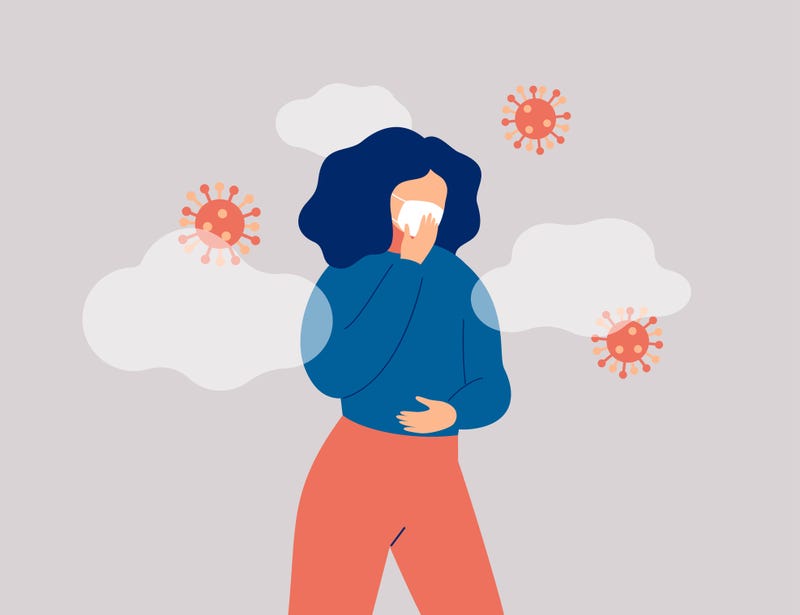
The COVID-19 pandemic continues to evolve with new strains and new vaccines, but now new research is suggesting that there are a variety of symptoms being reported from patients testing positive for the virus.
The study from ZOE Health has pointed to dozens of new symptoms, including the typical cold and flu-like symptoms and more unique ones like "COVID tongue."
According to the study, there has been a change in the symptoms experienced by COVID-19 patients, and which symptoms someone experiences can vary based on a person's vaccination status.
The study was conducted in a joint effort by Massachusetts General Hospital researchers, the Harvard T.H. Chan School of Public Health, King's College London, Stanford University School of Medicine, and ZOE.
The researchers shared the list of updated symptoms being reported after researching participants in three groups, those vaccinated, those with one dose, and those who are unvaccinated.
"There are a few reasons why symptoms may be changing, including the fact that those who have been vaccinated experience less severe symptoms, as well as more cases being reported by younger people, who we have found experience different, less severe symptoms as well," ZOE Health said.
In all three groups, there were four commonly reported symptoms, a sore throat, runny nose, persistent cough, and headache. However, the fifth symptom reported varied from group to group.
The fifth most commonly reported symptom for those that were vaccinated was a blocked nose; for the partially vaccinated, it was sneezing; and for the unvaccinated, it was fever.
Some commonly reported symptoms among COVID-19 patients at the beginning of the pandemic were less prevalent among the vaccinated, including loss of smell, fever, and shortness of breath.
Sneezing has also become more common among the vaccinated, something previously not seen as a symptom of COVID-19, according to the study. In addition, other symptoms have also become possible signs of COVID-19 infections that weren't previously thought to be, as participants in the study reported having chills or shivers, COVID toes or fingers, and stomach aches.
The study has not changed the official symptom list provided by the Centers for Disease Control and Prevention. Possibly symptoms still include fatigue, muscle or body aches, nausea or vomiting, and diarrhea.
The study did not look at which variant of the virus was related to each of the reported symptoms. Still, it did find that symptoms experienced from omicron were milder than its predecessor, the delta variant.
Even still, researchers warn to take caution when it comes to COVID-19.
"Whether you've had your COVID jabs or not, we all still need to be careful to protect your own health as well as those around you in your family, workplace and community," ZOE Health said.
Follow KNX News 97.1 FM
Twitter | Facebook | Instagram | TikTok


